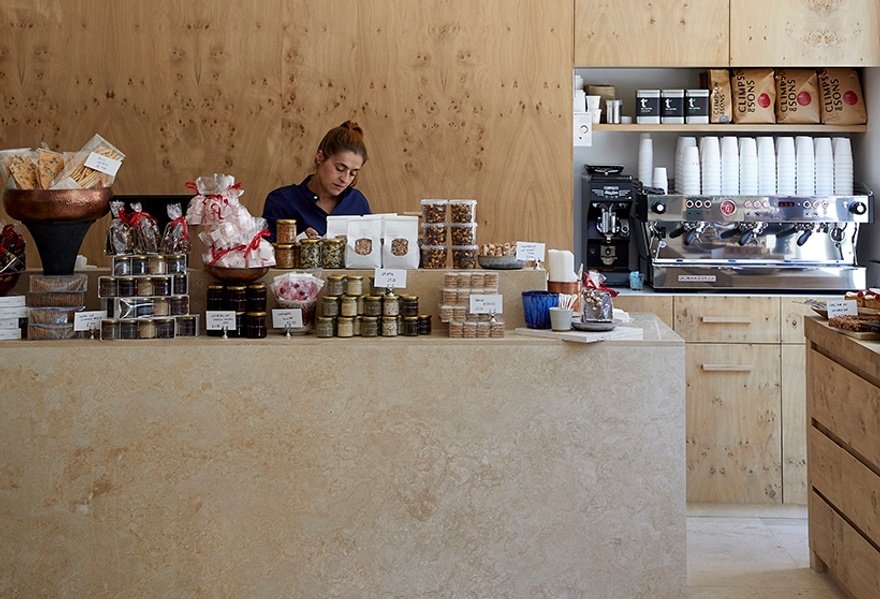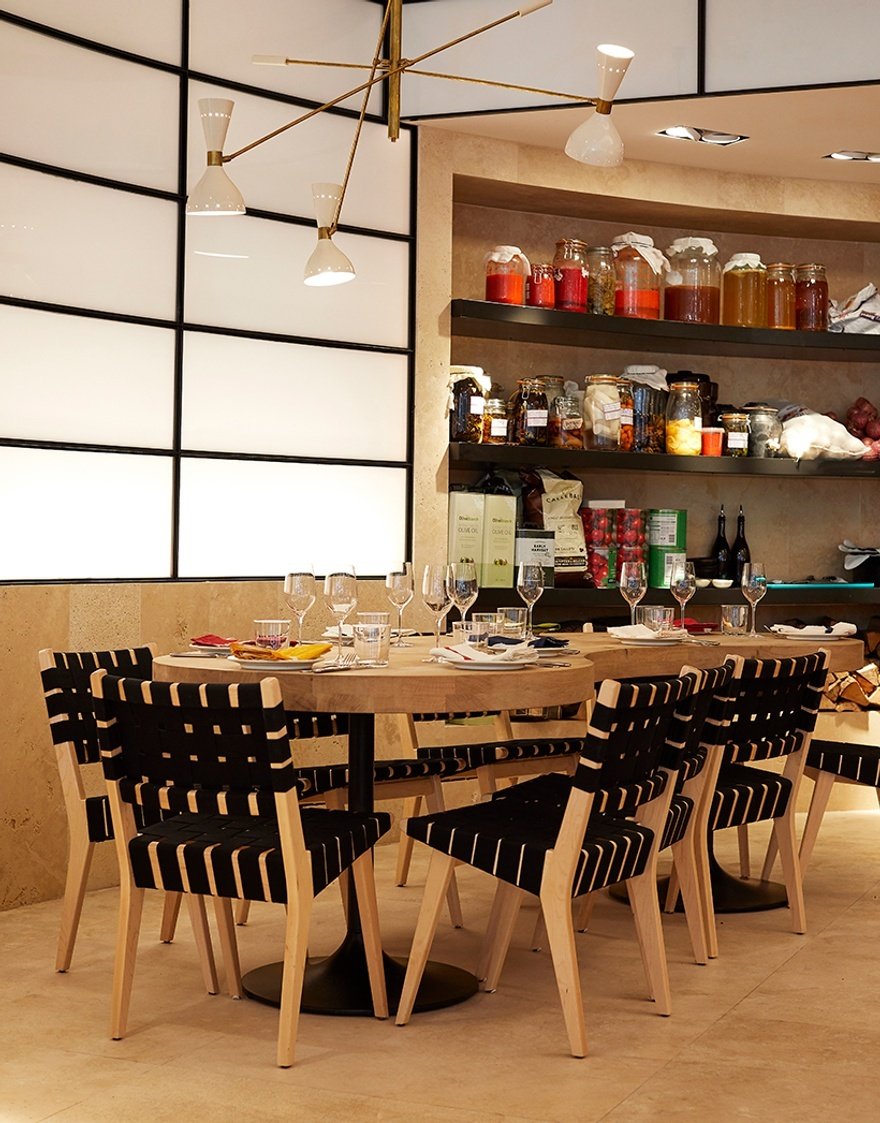The restaurateur talks to Jennie Milsom about receiving a warm welcome on reopening, his new book, Flavour, and how he's pared back his usual long ingredient list during lockdown.
What has lockdown been like for you?
It's been really weird. There have been ups and downs, but it's been amazing for family life – we've had proper quality time with the kids, mostly spent cooking, eating and planning tomorrow's meal. That's been fantastic. But obviously there has also been a lot of anxiety about what's going to happen in the future, for everyone, on so many levels. We've been in a kind of suspension, neither in the old world nor the new. It was hard to get used to a limbo where everybody's inside and the world is quiet.
You lost your sense of taste and smell earlier this year – that must be hard when your life revolves around food.
I was pretty ill and I was in bed for a good two-and-a-half weeks. At the time I didn't realise losing my sense of taste was a symptom of Covid-19 – that symptom was discovered after I had it. So, at the time, I didn't necessarily think it was to do with the virus but, in hindsight, it made sense.
You reopened two of your delis in May. What's the future for delis and can we still share big platters of food?
We opened the delis in Notting Hill and Islington and had a really, really warm welcome from customers, who said, ‘we've been waiting for you to open up' and ‘we're back to normality now'. It's been fantastic.
The platters are still there. We put Perspex sheets between customers and the salads, so people are not close to the food, and the servers are standing behind the screens – this way customers don't have contact with the food, staff are separated and customers can still see the food. It's gone down really well. We've also had a good intake with click and collect and delivery.
Tell us about your test kitchen in Camden.
We are under one of the railway arches near Camden Market. We use it to test the recipes that are published in the cookbooks and newspapers. It's also like a head office – there are a lot of things going on and it's nice being around people. Our chefs sometimes go there to test recipes, but most testing for the restaurants happens at the restaurants. We've also launched our webstore [for fresh and pantry produce, tableware, spices, hampers and gifts], which is doing really well.
With costs more of an issue than ever, are chefs going to have to rethink ingredients? Can rice and lentils be indulgent and celebratory?
First of all, there's nothing wrong with rice and lentils! The way I see it, we are going back to basics. The lockdown experience has meant we've had to produce three meals a day, whether for yourself, your flatmate or your family. It's made us think more frugally and creatively, having to use ingredients that we already have or that we could get hold of easily.
I'm totally aware that people aren't going to far-out supermarkets and stores to source rose water and preserved lemon and things like that.
We've always been adaptable, but this is a very unusual situation
However, I think that people who leave their house still want more exotic and special experiences. What we will see are slightly smaller menus – 15 or 10 items – and smaller numbers of customers. We're trying to reduce the menu as we're not working on the same capacity as before. People will still come to our restaurants and delis for the interesting flavours that they've always been looking for.
How have you had to adapt the business for reopening?
We're opening one restaurant at a time. The first restaurant we opened was Rovi in Fitzrovia [on 9 July] and we're working with menu that is 30-40% smaller. We've kept everybody's favourites, like our celeriac shawarma – a big sandwich with slow-cooked celeriac, tomato sauce and spinach. The food there is pretty comforting – all the things that people love and enjoy.
The next restaurant we're planning to open is Nopi. We're taking it easy as we want to see how things go and learn from one restaurant before we move on to the next. There are a lot of unknowns – we need to work out how we work with the new rules and requirements and also see what customers want and the level of guests we'll have. So we'll learn from Rovi and then apply it to Nopi.
Did you feel there was a lack of clarity in terms of how to operate?
Well, we know more now, which is great, because we now know what social distance we've been asked to observe. That makes a massive difference for us, so in that respect I'm happy. The onus is on the operator to implement this, so on that level we are OK. I think because there are so many different circumstances with different restaurants, it's good to let us make some decisions. I hope the authorities will respect that we're doing the right thing and let us apply all our safety procedures.
What other challenges are there?
The biggest is with our rent. We were hoping for a very long time that the government would come up with a solution that would help both landlords and operators to sort out the rent issue, because we haven't been paying rent for months and it's very hard for restaurateurs and landlords to sort this out themselves. What we were asking from the government was for nine months rent-free and to support landlords at the same time. We would have been in a much clearer situation.
Now it's crunch time for all of us because we have a very short amount of time to re-establish our relationships with our landlords and say, ‘OK, what is our new relationship going to look like?' Nobody is going to be able to be expected to pay the same level of rent as before, or to pay the whole rent while there is no money coming in. Everybody's negotiating with their landlords now. If there is no give and if landlords and tenants are not able to reach agreements, that will have grave consequences for us – not only for my company but for the whole industry.
You welcomed the furlough scheme, but said you had concerns about what would happen later in the year. Is this still a concern?
Yes, absolutely, we are all worried about that. I hope there will be a V-curve return to normal but I think it's probably quite unlikely. It's more likely that we will be operating on a much lower capacity and I am worried that we will need longer to sort this out.
If there is no give and if landlords and tenants are not able to reach agreements, that will have grave consequences for us – not only for my company but for the whole industry
The recent update is that furlough will continue until October with varying degrees of business participation, but I would love to have a per-industry continuation of some kind of furloughing for longer than the government allows so far – one that is specific for those who can't operate at full capacity or for those who can't operate at all.
All food operators – whether a pub, restaurant or sandwich shop – will tell you that if you don't have the minimum footfall, the overheads are too high to make it profitable. That's the reality of business. So if we don't have minimum footfall and we don't have government support beyond furlough, we will be in trouble.
[Laughs] It's not a zero-sum game, luckily. I think we can all cook incredible food with a slightly pared-down menu and that chefs have a great ability to change their menus. At Rovi we're doing a merguez sausage with an aubergine condiment, using cheaper cuts from the cow we wouldn't be using otherwise. We also have a carpaccio, which is much more of a prime cut. They complement each other. We've always been aware of sustainability in terms of keeping the cost down, even more so now.
How does the industry need to change?
The industry is already changing. It's truly adaptable and we've proved this over and over again by coming up with new things like pop-ups, street food, and amazing options for take-outs and deliveries. We've always been adaptable, but this is a very unusual situation. We will adapt and change. Chefs have been coming up with a whole range of solutions during lockdown, from home kits, click and collect, online cookery demos – a bunch of avenues to draw people's attention, to make some impact and get an income as well. So I think we will do that, but it's difficult if the high street is quiet. I think for city centres where businesses are shut or operating at a low capacity and where shopping is not as it used to be, it's going to be tougher.
Your Instagram is always full of gorgeous-looking food – how has social media served the industry during this crisis?
I think it's absolutely amazing that we've got that voice on social media. People feel that they know our industry, our chefs and our world and what we're all about. We've been able to tell our story during lockdown. I think we've proved that we care and we're really part of the fabric of society. Social media is a really incredible way to tell that story.
Whose social media accounts have you been following recently?
José Pizarro, who has been doing a lot on social media. I love his videos, his can-do approach and upbeat attitude. And I follow Anna Jones cooking vegetables and her videos for home-cooks. She has some incredible recipes. I've also got my own little team who have been posting under the Ottolenghi Test Kitchen OTK hashtag. It's nice to see what goes on in other people's kitchens.
What have you been cooking at home?
I've been trying to use up everything in my cupboard – tins of chickpeas, sardines and anchovies, using up my spices and getting a veg box and using every vegetable. I've cooked a lot of fritters with the kids from whatever vegetables I have around.
Your new cookbook Flavour is out in September. What can we expect?
Well, there's so much to talk about… One of the things we do quite a lot in Flavour – which is co-authored with Ixta Belfrage – is we have a whole section dedicated to condiments. Essentially, they're little takeaways that come out of the recipes and boost the flavours. Things that are fermented or pickled, that really intensify the flavours of vegetables, and marinades and chilli sauces that enhance the flavour of dishes.
They're like flavour bombs and while you're cooking you can make these to keep in jars in the fridge to use in future cooking, like chilli sauce, chilli butter or infused oils, chutneys and pickles. For example, there is a recipe for a fresh chilli oil which involves charring chilli, lime, lemon and infusing it with lots of oil. We then use it to marinade butter beans.
Ottolenghi at a glance
2002 Notting Hill, the original Ottolenghi deli, opens
2004 Islington restaurant and deli opens
2005 Kensington deli opens (closed 2013)
2007 Belgravia deli opens
2008 Debut cookbook Ottolenghi: The Cookbook (with Sami Tamimi) published
2010Plenty: Vibrant Vegetable Recipes from London's Ottolenghi published
2011 Nopi brasserie in Soho opens
2015 Spitalfields deli opens. Nopi: The Cookbook (with Ramael Scully) published
2018 Rovi restaurant in Fitzrovia opens
2018Ottolenghi Simple: A Cookbook published
Continue reading
You need to be a premium member to view this. Subscribe from just 99p per week.
Already subscribed? Log In












